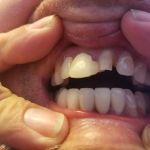How to Maintain Healthy Oral Hygiene in Your 30s – Essential Tips and Practices
- Oral Care Tips for Your 30s
- Common Oral Hygiene Issues in Your 30s
- Importance of Regular Dental Check-ups
- How to Prevent Tooth Decay and Gum Disease
1. Oral Care Tips for Your 30s
As we transition into our 30s, our oral hygiene habits need to evolve. Maintaining healthy oral hygiene becomes increasingly important to prevent issues like tooth decay and gum disease. Here are some key practices to follow:
- Brush at least twice a day with fluoride toothpaste to prevent plaque buildup and cavities.
- Floss daily to remove food particles between your teeth that brushing alone cannot reach.
- Use mouthwash to kill bacteria and freshen your breath, but choose alcohol-free options to avoid drying out your mouth.
- Maintain a balanced diet rich in calcium and vitamin D to support strong teeth and gums.
By following these oral care tips, you'll ensure that your teeth and gums stay healthy as you enter your 30s.
2. Common Oral Hygiene Issues in Your 30s
While many people have good oral hygiene routines in their 20s, things can change once we hit our 30s. Here's a look at some common oral issues you might face during this decade:
- Increased risk of gum disease: As we age, the risk of developing gum disease increases due to changes in oral health and lifestyle.
- Teeth sensitivity: Some people experience tooth sensitivity, especially to hot or cold foods, as enamel wears down over time.
- Tooth decay: Even with good brushing habits, tooth decay can still occur, especially if you don't visit your dentist regularly.
- Staining and discoloration: Coffee, tea, and red wine are common culprits that can stain teeth over time, affecting your smile.
It's important to be proactive about these issues, ensuring you address them early on to avoid more serious complications down the road.
3. Importance of Regular Dental Check-ups
Even if you follow a strict oral hygiene routine, regular dental check-ups are essential for maintaining long-term oral health. In your 30s, it's recommended to visit your dentist at least twice a year. Here’s why:
- Professional cleaning: Dentists can remove tartar buildup that regular brushing can't address.
- Early detection: Regular check-ups help detect potential problems like cavities, gum disease, or oral cancer early when treatment is more effective.
- Customized advice: Your dentist can provide personalized recommendations based on your oral health needs and lifestyle.
Skipping dental check-ups may save time and money in the short term, but it can lead to costly and painful treatments later on.
4. How to Prevent Tooth Decay and Gum Disease
Tooth decay and gum disease are two of the most common oral health issues that people face as they age. Here’s how to prevent them:
- Brush properly: Use a soft-bristled toothbrush and a gentle circular motion to prevent gum recession and enamel wear.
- Limit sugary foods: Sugar feeds bacteria in your mouth that cause cavities. Try to limit sugary snacks, and rinse your mouth with water after eating.
- Stay hydrated: Drinking water helps wash away food particles and bacteria that can lead to decay.
- Chew sugar-free gum: This can help stimulate saliva production, which neutralizes acids and helps prevent cavities.
By adopting these preventative measures, you can protect your teeth and gums from decay and disease as you continue into your 30s.
Taking care of your oral hygiene in your 30s is essential for maintaining a healthy smile and preventing long-term dental problems. If you're looking for more personalized advice or products to support your oral health, click here to learn more about the best oral care solutions for your 30s.







 Dental Arts of South Jersey
Dental Arts of South Jersey Monarch Dental & Orthodontics
Monarch Dental & Orthodontics Swope Health Independence
Swope Health Independence Thornwood Family Dental - South Elgin
Thornwood Family Dental - South Elgin Pediatric Dentistry Of San Clemente
Pediatric Dentistry Of San Clemente Polaris Dental Care
Polaris Dental Care The Importance of Oral Health Education During Pregnancy for a Healthy Pregnancy
The Importance of Oral Health Education During Pregnancy for a Healthy Pregnancy Why Skipping Dental Checkups Can Lead to Bigger Oral Health Problems
Why Skipping Dental Checkups Can Lead to Bigger Oral Health Problems Advantages of Porcelain Dental Restorations
Advantages of Porcelain Dental Restorations Best Tips for Brushing Your Teeth Properly for Healthy Gums: Essential Techniques for Oral Health
Best Tips for Brushing Your Teeth Properly for Healthy Gums: Essential Techniques for Oral Health How Can Diabetes Cause Tooth and Gum Problems? Preventing and Managing Oral Health Issues
How Can Diabetes Cause Tooth and Gum Problems? Preventing and Managing Oral Health Issues Healthy Habits for Promoting Good Oral Health and Hygiene: Tips for a Healthy Smile
Healthy Habits for Promoting Good Oral Health and Hygiene: Tips for a Healthy Smile